Dennis Bergkamp (Part 3)
Dennis Bergkamp (Part 3)

Dennis Bergkamp's illustrious career has been adorned with numerous accolades and honors, cementing his status as one of the greatest footballers of his generation. Widely acclaimed by pundits, he is revered as one of the premier forwards in Premier League history and celebrated as one of the finest players to have graced the jerseys of Ajax and Arsenal.
Throughout his playing days, Bergkamp received a plethora of prestigious awards and recognitions. His remarkable achievements include finishing in the top three for the FIFA World Player of the Year award on two occasions and earning a place in the FIFA 100 list compiled by Pelé. Domestically, he clinched consecutive Dutch Footballer of the Year titles and secured the Eredivisie top scorer crown for three consecutive seasons. Bergkamp's brilliance on the field was duly recognized with accolades such as the FWA Footballer of the Year and PFA Players' Player of the Year awards.
Bergkamp's impact transcended individual accolades, as he left an indelible mark on the footballing landscape with his breathtaking goals and creative wizardry. His contributions to the Dutch national team earned him recognition as the joint top scorer at Euro 1992 and inclusion in the All-Star teams for both Euro 1992 and the 1998 FIFA World Cup.
In addition to his on-field exploits, Bergkamp's legacy is immortalized through various tributes and honors. He was inducted into the English Football Hall of Fame and ranked second in Arsenal fans' poll of the 50 Greatest Gunners. The unveiling of a statue outside the Emirates Stadium stands as a testament to his enduring impact at Arsenal. Furthermore, Bergkamp's stature in Dutch football history is further solidified with the erection of a statue outside the KNVB headquarters, alongside other luminaries of the Dutch game.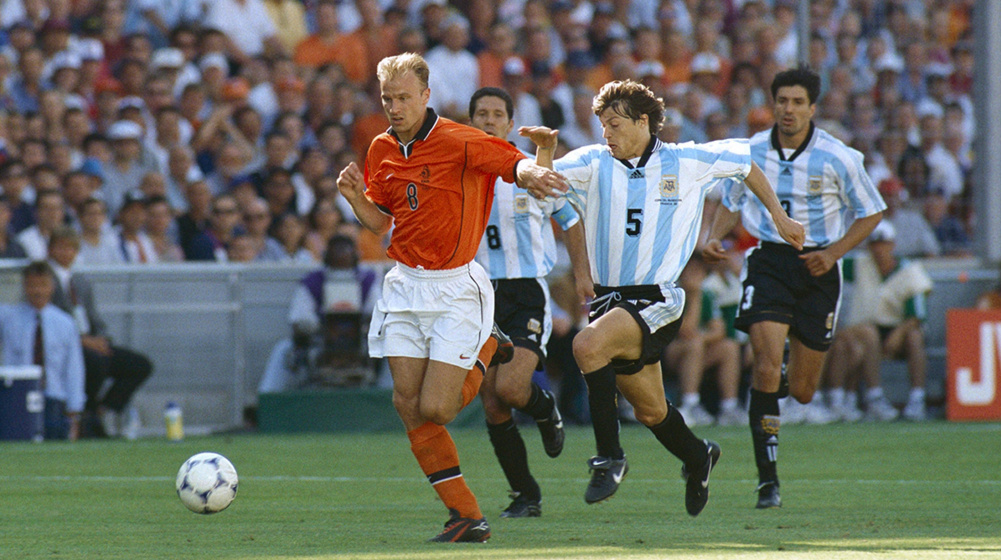
Jan Mulder lauded Bergkamp for his exceptional technique, while Thierry Henry described him as a "dream for a striker," highlighting his visionary playmaking abilities and unparalleled skill on the ball. Bergkamp's influence transcended borders and generations, etching his name in the annals of football history as one of the true maestros of the beautiful game.
Dennis Bergkamp's transition from playing to coaching was initially marked by a reluctance to enter the coaching realm. Despite turning down early offers to scout for Arsenal, he eventually embarked on a coaching journey, albeit in a gradual manner.
In April 2008, Bergkamp initiated his coaching education by enrolling in a fast-track coaching diploma program tailored for former Dutch international footballers. Subsequently, he took up a trainee role at Ajax, signaling the beginning of his formal foray into coaching.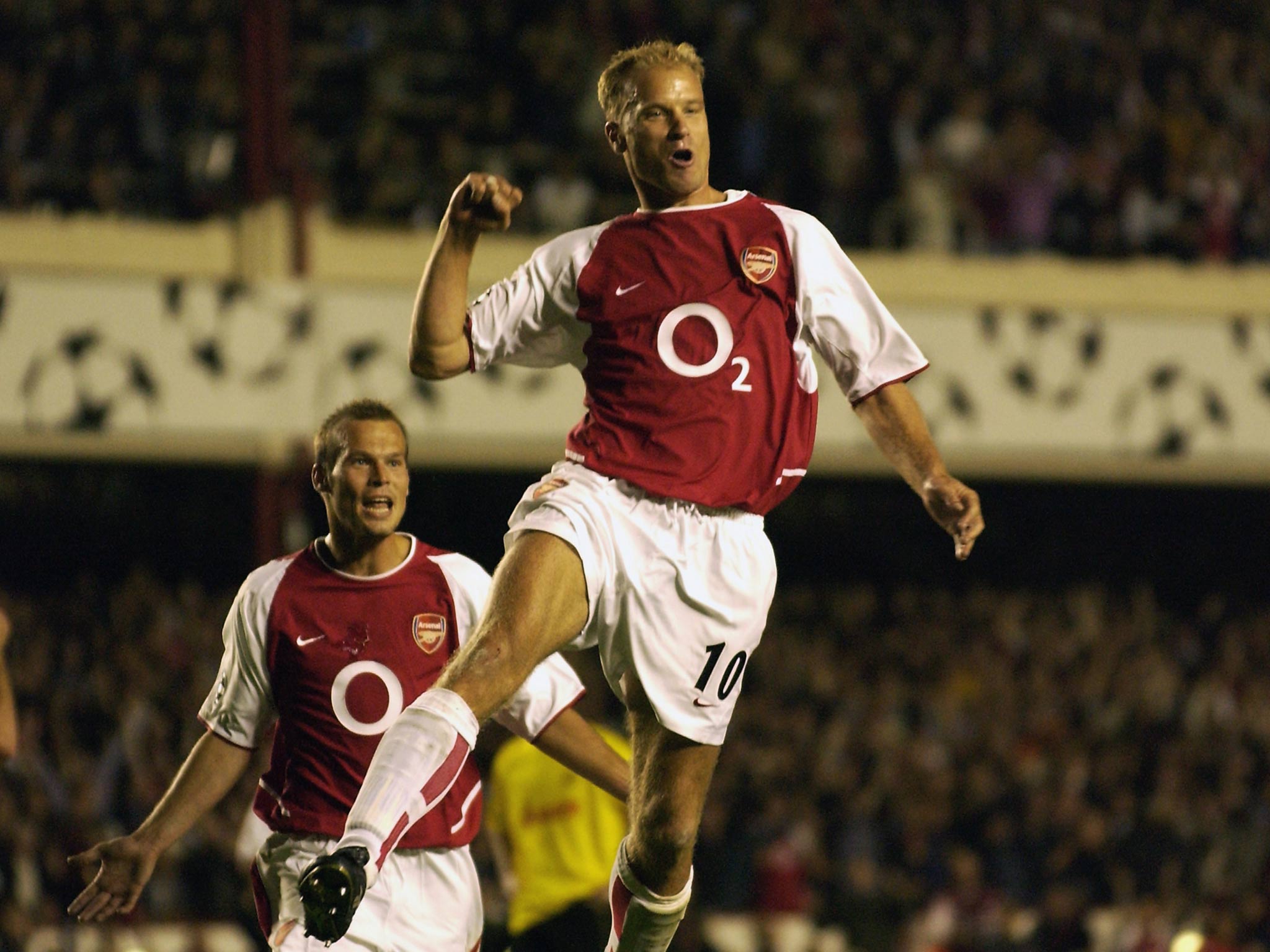
Having completed the Coach Betaald Voetbal course by the KNVB, Bergkamp assumed the role of assistant to Johan Neeskens for the newly established Netherlands B team in October 2008. This marked his first official coaching position, where he could impart his knowledge and expertise to budding talents.
Bergkamp's coaching journey then led him back to his beloved Ajax, where he held various coaching positions within the youth setup. Initially tasked with coaching the D2 (U12) youth team, he later ascended to the role of assistant manager for the A1 (U19) youth team under Fred Grim, following Frank de Boer's promotion to the managerial helm in December 2010.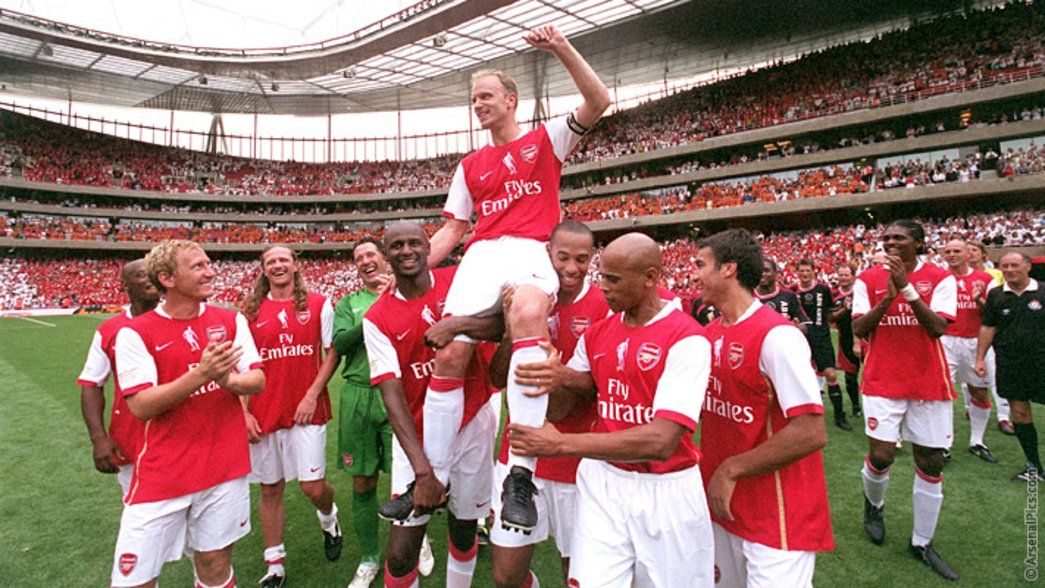
In August 2011, Bergkamp assumed the role of assistant to De Boer at Ajax, further solidifying his presence within the coaching staff of the prestigious club. However, with the appointment of Peter Bosz as head coach, Bergkamp's responsibilities underwent a slight adjustment, focusing more on field training and nurturing youth talents rather than sitting on the bench during first-team matches.
Despite his contributions and commitment to Ajax, Bergkamp, along with fellow assistant Hennie Spijkerman, faced an unexpected turn of events when they were relieved of their duties in December 2017. This marked the end of Bergkamp's coaching tenure at Ajax, albeit punctuating a chapter in his coaching journey that showcased his dedication to the development of young talents and the progress of the clubs he served.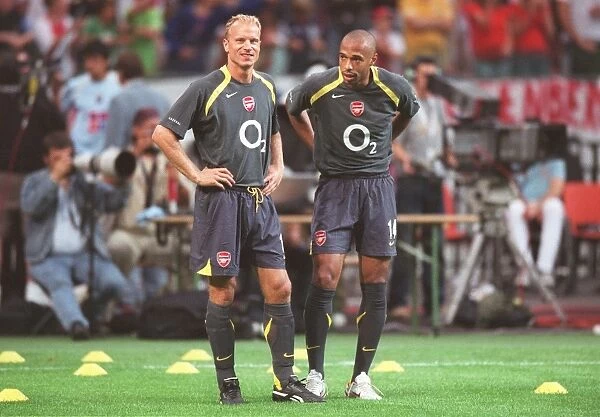
Dennis Bergkamp's personal life is grounded in his long-standing marriage to Henrita Ruizendaal, with whom he tied the knot on June 16, 1993. Together, they have been blessed with four children: Estelle Deborah, Mitchel Bergkamp, Yasmin Naomi, and Saffron Rita. Notably, their son Mitchel has followed in his father's footsteps and is pursuing a career in football, currently playing for Bromley as of January 2023.
In addition to his familial ties, Bergkamp's family connections extend to the footballing world. His daughter Estelle is romantically involved with Manchester United midfielder Donny van de Beek, with whom she welcomed their first daughter on April 9, 2022.
Furthermore, football runs in the family as Bergkamp's nephew, Roland Bergkamp, also had a career as a professional footballer, carrying on the family's legacy in the sport.
Bergkamp's linguistic abilities are impressive, as he is fluent in Dutch, English, and Italian, reflecting his international experiences both on and off the field. This multilingualism likely facilitated his seamless transitions between various clubs and cultures throughout his illustrious football career.
Dennis Bergkamp's nickname, the "Non-Flying Dutchman," sheds light on his well-known fear of flying, which significantly impacted his career and travel arrangements. Initially believed to have been triggered by incidents during the 1994 World Cup with the Netherlands national team, such as a plane engine failure and a bomb joke made by a journalist, Bergkamp clarified in his 2013 autobiography that his phobia actually developed during his first season at Inter Milan. This was due to the team's frequent use of small airplanes for away travel.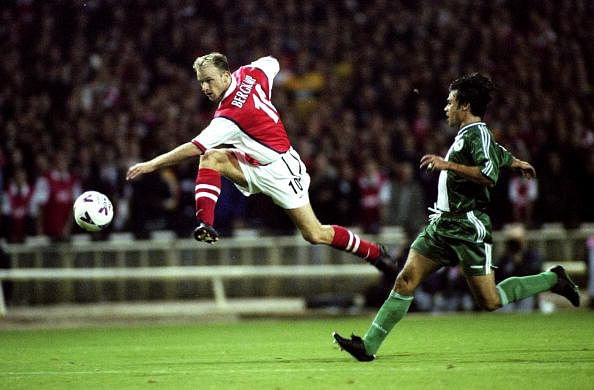
Bergkamp's fear of flying became a serious obstacle, leading him to refuse to fly altogether after the 1994 World Cup. Despite considering seeking psychiatric help in 1996, he ultimately accepted his condition as something he had to live with. This psychological barrier profoundly affected his ability to participate in away matches in European competitions and to join the national team for distant fixtures.
To cope with his fear, Bergkamp sometimes opted for alternative travel methods, such as overland journeys by car or train. However, the logistical challenges of certain matches occasionally meant that he could not travel at all. His fear of flying was a topic of concern for his coaches and teammates, with Arsenal manager Arsène Wenger expressing worries about the physical strain of alternative travel methods on Bergkamp, particularly before important matches like Champions League fixtures.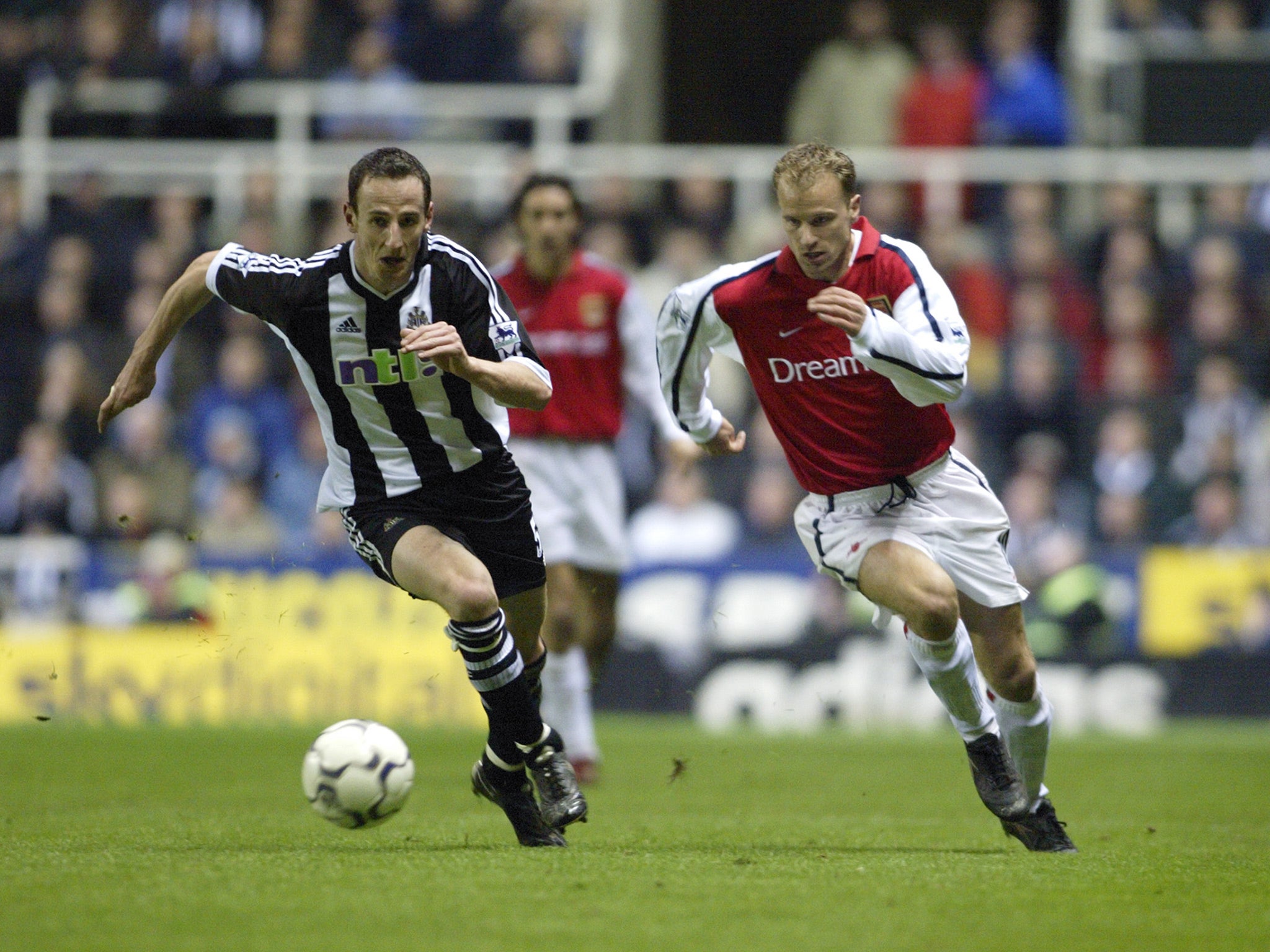
References
- "Can Holland improve and win Euro 2000?". BBC Sport. 11 June 2000. Retrieved 1 May 2012.
- ^ Strack-Zimmermann, Benjamin. "Netherlands vs. France". www.national-football-teams.com. Retrieved 10 November 2023.
- ^ "France 2 - 3 Holland". The Guardian. 21 June 2000. Retrieved 10 November 2023.
- ^ "Netherlands bite back to edge past France in EURO 2000 Group D". UEFA.com. 6 October 2003. Retrieved 10 November 2023.
- ^ Strack-Zimmermann, Benjamin. "Netherlands vs. Yugoslavia". www.national-football-teams.com. Retrieved 10 November 2023.
- ^ "Netherlands-Yugoslavia UEFA EURO 2000". UEFA.com. Retrieved 10 November 2023.
- ^ "Italy through on penalties". BBC Sport. 29 June 2000. Retrieved 1 May 2012.
- ^ Staniforth, Tommy (11 August 2000). "Blow for Dutch as Bergkamp decides on retirement". The Independent. Retrieved 30 April 2012.
- ^ "Kluivert milestone". Sunday Mirror. London. 8 June 2003. Archived from the original on 2 June 2013. Retrieved 1 May 2012. (subscription required)
- a b Helene Elliot (7 July 1994). "WORLD CUP USA '94 / QUARTERFINALS : A Happy 'Kamper : Dutch Forward Bergkamp Feeling More Confident". The Los Angeles Times. Retrieved 25 March 2016.
- a b "BERGKAMP, Dennis" (in Italian). Treccani.it. Retrieved 13 January 2015.
- ^ Haugstad, Thore (25 October 2019). "Thierry Henry's assist record of 2002/03: how Arsenal's talisman reinvented the Premier League striker". FourFourTwo. Retrieved 21 January 2020.



































